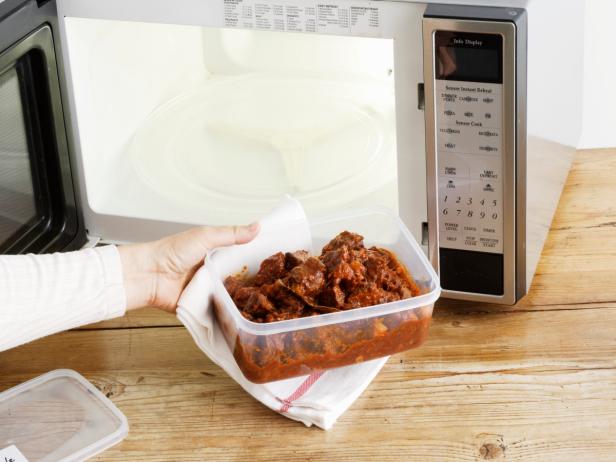If you enter the mini kitchen or the canteen in many offices, you’ll see many workers filing in and out with their lunch packs.
Some people take pride in eating healthy, hence they take the pain to go to work with foods they prepare at home.
However, experts say the safety of the entire process is disturbed when you microwave your food in plastic container!
substances in plastic ware can lead to infertility, thyroid disease, early puberty, leukemia, breast, uterine and prostate cancers, neurobehavioral issues, obesity, and metabolic dysfunction
According to the World Health Organization, it is a bad idea to heat food in plastic ware.
For avoidance of doubt, the problem has nothing to do with microwave oven. “Microwaving food is generally safe. However, microwaving in plastic containers is associated with increased leaching — the transfer or leaking of chemicals into food,” WHO warns.
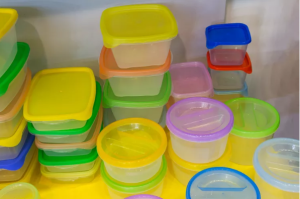
Again, a 2019 article published by Harvard Medical School says studies show that certain chemicals in plastic can leach into the food and beverages stored in them.
“Some of these chemicals have been linked to health problems such as metabolic disorders (including obesity) and reduced fertility.
“This leaching can occur even faster and to a greater degree when plastic is exposed to heat. This means you might be getting higher dose of potentially harmful chemicals simply by microwaving your food in a plastic container,” the authors state.
BPA and some phthalates are endocrine disruptors because they mimic or block natural hormones in the body
Different types of plastic wares
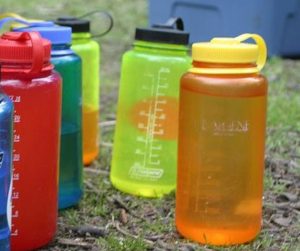
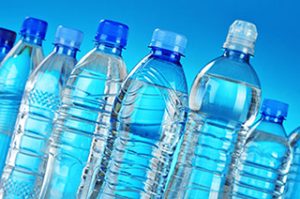
‘Plastic’ refers to a range of materials with substances added to shape or stabilize them. The two most common stabilizers are:
Bisphenol A (BPA): Used to make plastic harder
Phthalates: Used to make plastic stronger and more flexible
These substances matter because BPA, and some phthalates, are considered endocrine disruptors, as they mimic or block natural hormones in the body.
“It’s important to avoid substances that interfere with hormones,” says Dr. Neelima Chu, a board-certified endocrinologist and internal medicine doctor. “These substances can lead to infertility, thyroid disease, early puberty, leukemia, breast, uterine and prostate cancers, neurobehavioral issues, obesity, and metabolic dysfunction.”
Know the numbers
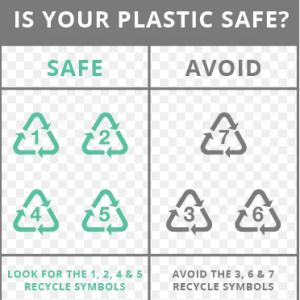
You can easily determine what plastics are BPA-Free by looking at the number stamped on the product. This stamp is meant to help quickly identify products labeled as BPA-free.
There are different types of plastic containers that are labeled with a 1, 2, or 5, these are considered BPA-Free. So, before using any plastic container, check the numbers.
But this does not encourage you to store food or drinks in the plastic ware. Rather, experts advise storing drinks in glass bottles, and foods in ceramic and porcelain ware.
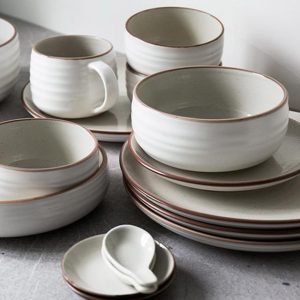
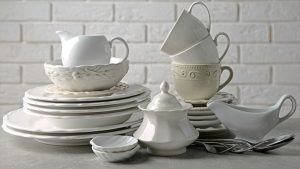
How to play safe
- Try to use medium heat in the microwave and avoid setting it to run for more than three minutes. Instead, reheat food a minute at a time, stirring in between to distribute the heat and avoid super-high temperatures.
- Choose phthalate-free and BPA-free products.
- Microwave food in glass or microwave-safe porcelain.
- Use paper towels, not plastic to cover food. Condensation from plastic lids could contain phthalates.
- Use glass, stainless steel, ceramic or wood ware to hold and store foods.
- Throw away old plastic ware, as there is more leaching if it is older or cracked.
- Avoid reusing plastic water bottles or takeout containers.
- Do not keep water bottles near heat or in the sun.
- Avoid placing hot liquids or foods in plastic ware.
- Avoid freezing plastic containers, then thawing them in microwaves.
- Read recycling symbols on plastic containers, and steer clear of those marked 3, 6 or 7.
Bottom line
As much as possible, avoid using plastic ware!

